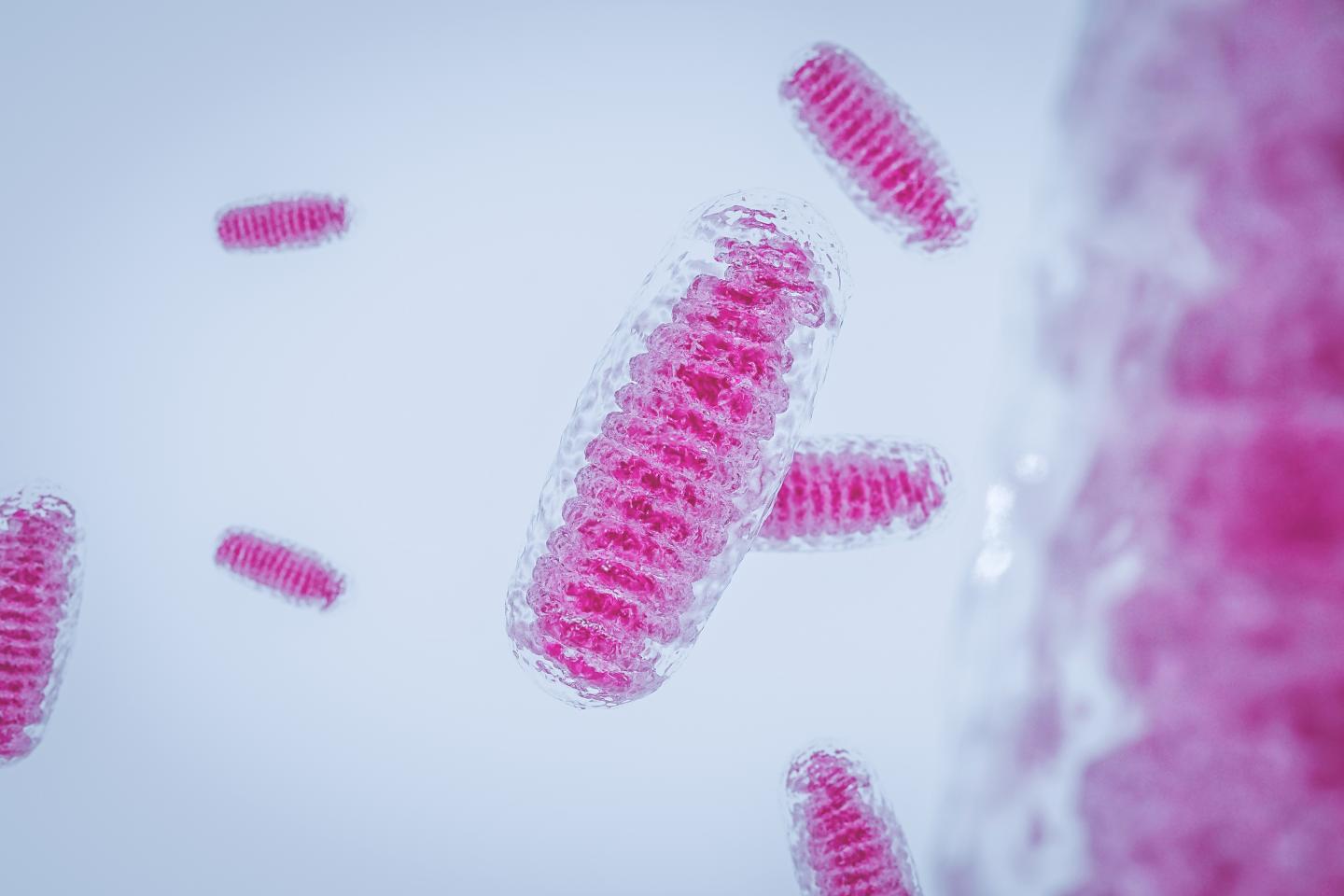Study further supports targeting lipid kinases as potential therapy for cancer

Credit: CI Photos
LA JOLLA, CALIF. – May 12, 2021 – Scientists at Sanford Burnham Prebys Medical Discovery Institute have taken a deep dive into a previously overlooked family of proteins and discovered that they are essential to maintaining the energy that cells need to grow and survive. The proteins, known as lipid kinases, produce messengers that help balance cellular metabolism and promote overall health. The findings, published in Developmental Cell, provide further support to pursue lipid kinases as promising therapeutic targets for diseases that demand excess energy, such as cancer.
“Cancer cells are hungry–they grow faster than most cell types and need energy to support their aggressive attempts to metastasize,” says Brooke Emerling, Ph.D., assistant professor in the Cell and Molecular Biology of Cancer Program at Sanford Burnham Prebys and corresponding author of the study. “Our study is one of the first to look at how PI5P4Ks–lipid kinases with known links to sarcomas and certain types of breast cancer–facilitate communications within the cell and maintain an energy balance to support cell growth.”
For years scientists have tried to halt cancer by blocking nutrients from reaching tumor cells. But these attempts have been disappointing because cancer cells are tricky and create back up routes to source food to sustain their growth. Emerling’s approach is to find and attack metabolic vulnerabilities within cells, which would deprive them of energy even in an abundance of nutrients and special tactics.
Using a combination of cell lines, imaging technology and mouse tumor models, Emerling’s team revealed that PI5P4Ks produce an active messenger that coordinates communications between peroxisomes and mitochondria–two organelles intimately involved in making and using fuel to support cellular growth. In the absence of the messenger, the interplay between the organelles breaks down, mitochondria become overworked, and cells starve and die.
“Mitochondria are the powerhouses of the cell, says Archna Ravi, Ph.D., a postdoctoral researcher in Emerling’s lab and first author of the paper. “They play an essential role in generating energy to drive cellular function and basically all biological processes. This research supports targeting PI5P4Ks as a cancer treatment strategy because it would deprive tumors of the one thing they can’t live without: energy.”
Emerling’s team previously discovered the essential role of PI5P4K in tumor formation. The new study indicates a role for PI5P4Ks not only in tumor establishment, but for the first time in tumor maintenance.
“We use sarcomas as a tumor model because PI5P4Ks are highly expressed in high grade sarcomas, and their expression correlates with patient survival,” says Emerling. “Sarcomas are a rare group of cancers that affect the body’s connective tissues, and about half of all cases can be cured, but for the other half, better therapies are desperately needed.”
Targeting PI5P4K may also be valuable for other tumor types that have developed profound metabolic alterations to source nutrients, such as triple negative breast cancer. Like sarcomas, triple negative breast cancer therapies remain woefully inadequate.
“Our goal is to develop drugs in the near future that inhibit PI5P4K and test the drugs in mice. If successful, we hope to advance to human clinical trials. I think the future for our research is very bright now,” concludes Emerling.
###
Additional study authors include Lavinia Palamiuc, Ryan M. Loughran, Gurpreet K. Arora and Vivian Tieu at Sanford Burnham Prebys; Joanna Triscott, Matthias Reist and Mark A. Rubin at the University of Bern, Switzerland; Avi Kumar and Christian Metallo at UCSD, La Jolla, CA; Chantal Pauli at University Hospital Zürich and the University of Zurich; Rachel J. Lew at the Gladstone Institutes, San Francisco; Shauna L. Houlihan at Memorial Sloan Kettering Cancer Center, New York; and Christof Fellmann at UCSF, San Francisco.
The study’s DOI is xxx.
Research reported in this press release was supported by grants from DOD (W81XWH-14-10440), NCI (R01 CA237536), and ACS (RSG-20-064-01-TBE) to Brooke Emerling, MSCA (797949) to Joanna Triscott, NIGMS (R00GM118909) to Christof Fellmann, SNSF (31003A_175609) to Mark A. Rubin, and Weill Cornell Medicine Englander Institute for Precision Medicine.
Chantal Pauli is a scientific adviser for SEngine Precision Medicine and is currently a study pathologist for the CUPISCO trial, which is sponsored by Roche. Pauli receives reimbursement for study-related travels and remuneration for her work as a study pathologist for the benefit of her employer. Christof Fellmann is a co-founder of Mirimus.
About Sanford Burnham Prebys Medical Research Institute
Sanford Burnham Prebys is a preeminent, independent biomedical research institute dedicated to understanding human biology and disease and advancing scientific discoveries to profoundly impact human health. For more than 40 years, our research has produced breakthroughs in cancer, neuroscience, immunology and children’s diseases, and is anchored by our NCI-designated Cancer Center and advanced drug discovery capabilities. For more information, visit us at SBPdiscovery.org or on Facebook at facebook.com/SBPdiscovery and on Twitter @SBPdiscovery.
Media Contact
Susan Gammon
[email protected]
Related Journal Article
http://dx.



